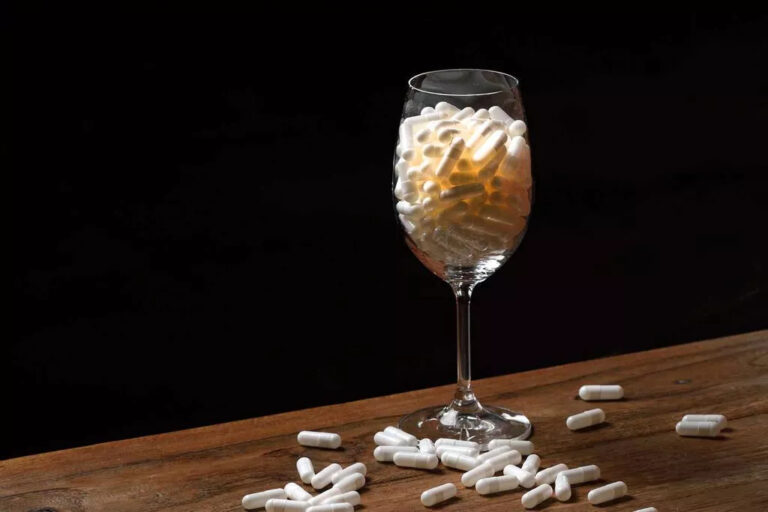Contents
Alcohol use, whether abused or not, can mask and worsen existing mental illness. When an alcohol use disorder is present, it is often suggested to take into account the alcohol use before trying to make an accurate diagnosis of any possible mental health problems. Any and all diagnoses should be provided by a professional and not the alcohol user or their family and friends.

This can make it a bit more difficult for you, the non-sober significant other, to understand why your partner decided to cut out alcohol. It’s no secret that dating can be tough — and it can be even tougher to date if you’re not sober but your partner is. Sometimes, if you have no personal experience with something such as addiction and recovery, it can be difficult to get on the same page as your partner. There isn’t a clear rule book when it comes to a non-sober person dating a sober person, as each and every relationship has its own unique dynamic.
Recovery Symbols to Celebrate Your Sobriety
Should you be hyper-vigilant of relapse or constantly afraid of it? Nor should you let the risk affect your decision to date someone in recovery. By the time someone has five years of sobriety, the risk is less than 15%. When it comes to sober dating, the elephant in the room is always relapse. This is important to remember, especially if your partner hits a rough patch and appears to be flirting with drinking again.
Likewise, the alcoholic could largely benefit from acknowledging their problem and opening themselves to the change that will be needed in order to overcome the alcohol use disorder. As the spouse of an alcoholic entering recovery, you may receive greater results when you help yourself before you attempt to help your loved one through this challenging time. People in active recovery from alcohol use disorder might carry some of their own baggage, and while you don’t have to take control over it, you should be prepared.
You still have work to do on yourself and your illness, so you’re going to have a lot of issues to work through. But if you start the right way, with your eyes open and with realistic expectations, then you may be able to find a rewarding relationship. Some people claim that sobriety makes dating easy for them. They were able to be more in tune with their feelings and emotions. They also developed stronger bonds with their potential partners, as they spent more time getting to know them rather than being under the influence. For example, if you cook a romantic dinner, your date may thoughtfully bring wine.
But it’s important to educate yourself about the truth behind addiction and what it really means to be with a recovering addict. Although dating someone in recovery comes with its own set of challenges, there’s no reason that you can’t have a successful and beneficial relationship if you do things the right way. At any time, day or night, to learn more about addiction relationship between bone mineral density and alcohol intake and treatment. You can also check your insurance coverage online now to determine whether your insurance provider will cover inpatient or outpatient rehab treatment. Enable your partner’s behavior with good intentions, it can significantly harm them, yourself and the relationship. Eliminating repercussions encourages a person to continue unhealthy behaviors.
Treatment for Alcoholics and Addiction to Alcohol
Most likely, they will have issues with trust in several ways. No matter where you land in terms of trust, there are plenty of ways to grow your vulnerability and faith in others. A life with a partner in active addiction or recovery will often lead to many traumatic situations and emotional volatility. This inclination towards tension—combined with a romantic relationship’s ever-fluctuating passions—can create an ebb and flow of feeling good about ourselves. The broken trust will be perhaps the biggest obstacle to overcome after addiction. If lies continue to be part of the relationship, neither trust nor a healthy marriage can be rebuilt.

You and your partner can pursue and maintain a healthy relationship if they do the work necessary to recover and maintain sobriety. If you have any questions or queries about helping a loved one struggling with alcohol and drug addiction, contact Cornerstone today. Furthermore, being in a typical don’t drink alcohol while taking these medications sober relationship can seem tedious. A person recovering from addiction may still recall the tension and drama of a relationship marred by substance abuse. There was an edge to every argument and threat of breakup because there was an excitement about being in that sort of arrangement.
Educate yourself about addiction and alcohol use disorder.
This is the same rule that they followed during the drinking and using. The price they pay is a lack of closeness and little understanding comorbid insomnia and alcohol use real intimacy. I’ve spent the last six years researching and understanding alcoholism, addiction, and how people get sober.
This sets you up for the crushing disappointment that can set off emotional triggers. The best advice is to let things happen as they will, at their own pace. If casual dating becomes something more meaningful, then congratulations. You need time to understand the other person and see who they are and how their personality meshes with yours.
- Resist the urge to downplay your drinking habits for your partner’s comfort.
- Inpatient programs at Soba Recovery are here to help your loved ones get back on track and focus on their own needs.
- Keep reading to learn the truth about addiction and what questions to ask before you start dating a recovering addict.
- Living in that fear and choosing the path of inaction will most likely produce negative results for you and your alcoholic spouse or partner.
The goal of getting together with a friend is to spend time with him. In contrast, acquaintances are seen because of the activity one shares with them. We can conceive of intimacy as the ongoing process of letting another person know and share more personal things about oneself. These layers of intimacy can be pictured as a series of rings. Approximately 30% of people who try to quit drinking will relapse in the first year. Your job is to support your partner’s recovery, not micromanage it.
Put Their Recovery First
Recovery is an ongoing process; we spend a lot of time in meetings, therapy sessions, and creating routines to achieve that. You’re going to have a lot of questions, and it’s important to ask them. Conversely, your partner should be open to discussing their needs, routines, triggers, and boundaries. Some people in recovery may want their partner to have an active role in their recovery efforts, while others may want to keep that part of their life more private at first.
Triggers are the people, places, things, and situations that make us want to drink. I heard this advice from Allie K. Campbell, a sobriety influencer on YouTube. She talked about how her girlfriend’s social life changed after they got together. One benefit of dating a sober person is that it forces you to reconnect with your interests and step outside your comfort zone. It’s easy to go out and get drunk with the person you like. Dating a recovering alcoholic means getting creative with date night.
Sekaisin-chat is a Finnish chat that supports mental wellbeing and helps to survive mental illness. Everyone communicates in their own specific way, but you must be on the same page with your partner. To be supportive and capable of helping them, you need to understand their needs while also addressing your own. If your partner is using a substance again, you might notice that their behavior is changing, and they are acting strangely. Alcohol use disorder is something that affects many people. It’s a disorder that can often get overlooked because of how prevalent alcohol is in our society.
Allow them to focus on their recovery.
The Study Psychologist helps you with questions regarding study motivation, balancing your studies and free-time and performance anxiety. The Study Psychologist is a licenced and trained professional within the social- and healthcare industry. Hanken offers services of a study coach that can provide tips and tricks in study habits and time management. Hanken also has a student priest that you can speak with about everything from relations to loneliness, faith and doubts. If you are struggling with addiction, it may seem like there is no end to it.
On the flip side, it’s also important not to assume someone in recovery is comfortable around alcohol. In a relationship, it’s not difficult to be honest and have a quick conversation in order to avoid any consequences of assumptions. The “rush” of a new relationship can be emotionally damaging and can derail even the most valiant recovery effort.
While it is okay to remain in a relationship during early recovery, you should not begin a new relationship before an individual has celebrated a year of sobriety. While one year may sound like a long time, this period is meant to be spent on personal growth and learning sobriety maintenance techniques. Being in recovery is about much more than just sobriety. Alcoholism is often a symptom of, or defense mechanism against, other mental health issues or traumatic life events.
We designed our inpatient and outpatient programs to treat individuals based on biological, psychological, familial and social needs. Partner set healthy boundaries, develop healthy communication skills and recognize any issues you need to address. Learn the signs of addiction so you recognize when they occur, and encourage your partner to seek help when they exhibit these signs.



